July 14th is a celebration of French National Day or commonly known to the English speaking countries as Bastille Day. The day commemorates the beginning of the French Revolution with the storming of the Bastille on the 14th July 1789 and symbolizes the end of absolute monarchy and the birth of sovereign Nation. It is also a day of la Fête de la Fédération, a joyous celebration in 1790 that honored the new French Republic and commemorated the one year anniversary of the storming of the Bastille.
Berghahn is delighted to suggest a selection of French Studies titles, along with some Berghahn Journals articles to browse through:
_____________________________________________________________
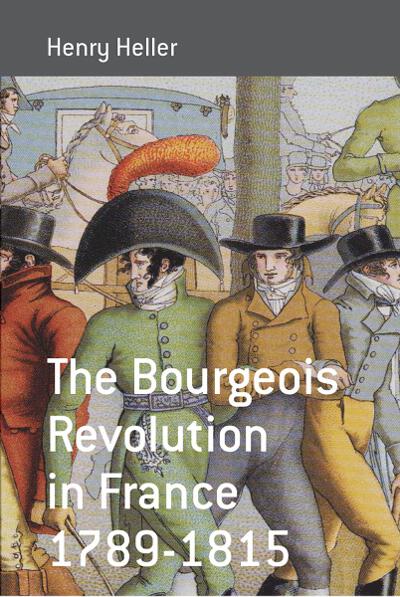
THE BOURGEOIS REVOLUTION IN FRANCE (1789-1815)
Henry Heller
Volume 5: Berghahn Monographs in French Studies Series
In the last generation the classic Marxist interpretation of the French Revolution has been challenged by the so-called revisionist school. The Marxist view that the Revolution was a bourgeois and capitalist revolution has been questioned by Anglo-Saxon revisionists like Alfred Cobban and William Doyle as well as a French school of criticism headed by François Furet. Today revisionism is the dominant interpretation of the Revolution both in the academic world and among the educated public.
Against this conception, this book reasserts the view that the Revolution – the capital event of the modern age – was indeed a capitalist and bourgeois revolution. Based on an analysis of the latest historical scholarship as well as on knowledge of Marxist theories of the transition from feudalism to capitalism, the work confutes the main arguments and contentions of the revisionist school while laying out a narrative of the causes and unfolding of the Revolution from the eighteenth century to the Napoleonic Age.
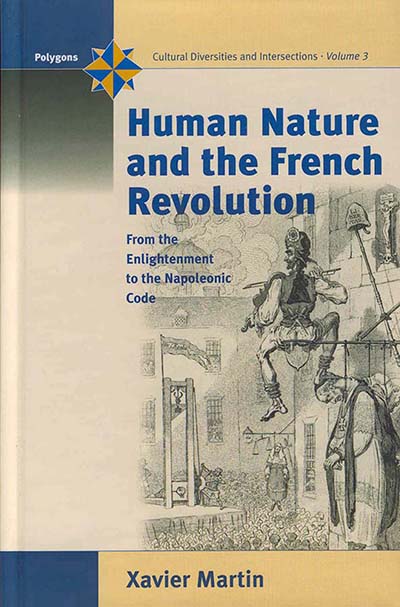
HUMAN NATURE AND THE FRENCH REVOLUTION
From the Enlightenment to the Napoleonic Code
Xavier Martin
What view of man did the French Revolutionaries hold? Anyone who purports to be interested in the “Rights of Man” could be expected to see this question as crucial and yet, surprisingly, it is rarely raised. Through his work as a legal historian, Xavier Martin came to realize that there is no unified view of man and that, alongside the “official” revolutionary discourse, very divergent views can be traced in a variety of sources from the Enlightenment to the Napoleonic Code. Michelet’s phrases, “Know men in order to act upon them” sums up the problem that Martin’s study constantly seeks to elucidate and illustrate: it reveals the prevailing tendency to see men as passive, giving legislators and medical people alike free rein to manipulate them at will. His analysis impels the reader to revaluate the Enlightenment concept of humanism. By drawing on a variety of sources, the author shows how the anthropology of Enlightenment and revolutionary France often conflicts with concurrent discourses.
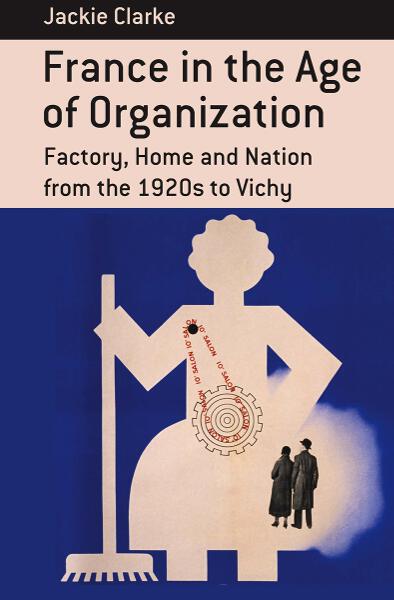 FRANCE IN THE AGE OF ORGANIZATION
FRANCE IN THE AGE OF ORGANIZATION
Factory, Home and Nation from the 1920s to Vichy
Jackie Clarke
In interwar France, there was a growing sense that ‘organization’ was the solution to the nation’s perceived social, economic and political ills. This book examines the roots of this idea in the industrial rationalization movement and its manifestations in areas as diverse as domestic organization and economic planning. In doing so, it shows how experts in fields ranging from engineering to the biological sciences shaped visions of a rational socio-economic order from the 1920s to Vichy and beyond.
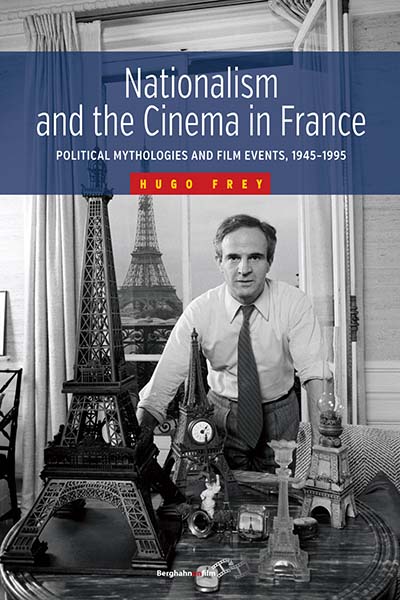 NATIONALISM AND THE CINEMA IN FRANCE
NATIONALISM AND THE CINEMA IN FRANCE
Political Mythologies and Film Events, 1945-1995
Hugo Frey
It is often taken for granted that French cinema is intimately connected to the nation’s sense of identity and self-confidence. But what do we really know about that relationship? What are the nuances, insider codes, and hidden history of the alignment between cinema and nationalism? Hugo Frey suggests that the concepts of the ‘political myth’ and ‘the film event’ are the essential theoretical reference points for unlocking film history. Nationalism and the Cinema in France offers new arguments regarding those connections in the French case, examining national elitism, neo-colonialism, and other exclusionary discourses, as well as discussing for the first time the subculture of cinema around the extreme right Front National. Key works from directors such as Michel Audiard, Jean-Luc Godard, Jean-Pierre Melville, Marcel Pagnol, Jean Renoir, Jacques Tati, François Truffaut, and others provide a rich body of evidence.
 AT HOME IN POSTWAR FRANCE
AT HOME IN POSTWAR FRANCE
Modern Mass Housing and the Right to Comfort
Nicole C. Rudolph
Volume 14, Berghahn Monographs in French Studies
After World War II, France embarked on a project of modernization, which included the development of the modern mass home. At Home in Postwar France examines key groups of actors — state officials, architects, sociologists and tastemakers — arguing that modernizers looked to the home as a site for social engineering and nation-building; designers and advocates of the modern home contributed to the democratization of French society; and the French home of the Trente Glorieuses, as it was built and inhabited, was a hybrid product of architects’, planners’, and residents’ understandings of modernity. This volume identifies the “right to comfort” as an invention of the postwar period and suggests that the modern mass home played a vital role in shaping new expectations for well-being and happiness.
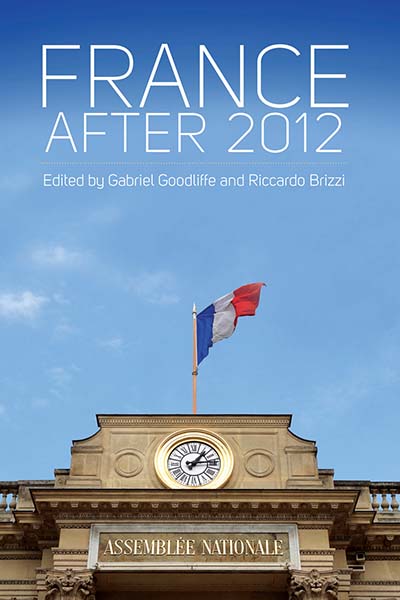 FRANCE AFTER 2012
FRANCE AFTER 2012
Edited by Gabriel Goodliffe and Riccardo Brizzi
In May 2012, French voters rejected the liberalizing policies of Nicolas Sarkozy and elected his opponent, the Socialist François Hollande, president. In June 2012, the incumbent president’s center-right UMP party was swept out of government in the ensuing parliamentary elections, giving way to a new center-left majority in the National Assembly. This book analyzes the contexts and results of the 2012 presidential and parliamentary elections in France. It assesses the legacies of the Sarkozy presidency that informed the 2012 electoral campaigns, scrutinizing his domestic social and economic policies on the one hand and European and foreign policies on the other. In turn, the elections’ outcomes are also analyzed from the standpoint of various political parties and other institutional interests in France, and the results are situated within the broader run of French political history. Finally, the book examines the principal challenges facing the Hollande administration and new government of Prime Minister Jean-Marc Ayrault, and assesses how effectively these have been met during their first year in office.
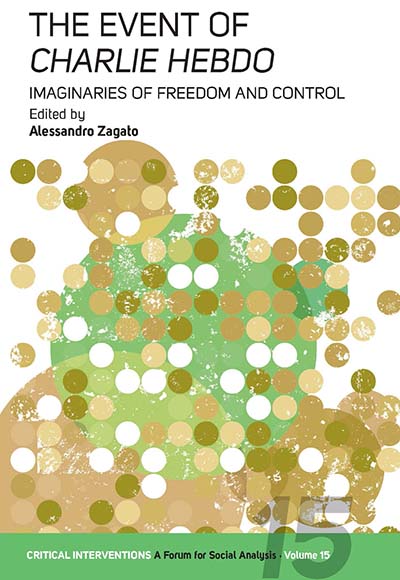 THE EVENT OF CHARLIE HEBDO
THE EVENT OF CHARLIE HEBDO
Imaginaries of Freedom and Control
Edited by Alessandro Zagato
Volume 15, Critical Interventions: A Forum for Social Analysis
The January 2015 shooting at the headquarters of satirical magazine Charlie Hebdo in Paris and the subsequent attacks that took place in the Île-de-France region were staggeringly violent events. They sparked an enormous discussion among citizens and intellectuals from around Europe and beyond. By analyzing the effects the attacks have had in various spheres of social life, including the political, ideology, collective imaginaries, the media, and education, this collection of essays aims to serve as a contribution as well as a critical response to that discussion. The volume observes that the events being attributed to Charlie Hebdo go beyond sensationalist reports of the mainstream media, transcend the spatial confines of nation states, and lend themselves to an ever-expanding number of mutating discursive formations.
________________________________________________________________
From Berghahn Journals
Please browse a selection of relevant Journal articles:
Claude Langlois’s French Revolution
Historical Reflections, Volume 39, Number 1
Colonizing Revolutionary Politics: Algeria and the French Revolution of 1848
French Politics, Culture & Society, Volume 33, Number 1
“La Politique Spectacle”: A Legacy of the French Revolution?
French Politics, Culture & Society, Volume 27, Number 3
Religious Origins of Modern Radicalism
Theoria, Volume 52, Number 106
———————————————————-
French Politics, Culture & Society
French Politics, Culture & Society explores modern and contemporary France from the perspectives of the social sciences, history, and cultural analysis. It also examines France’s relationship to the larger world, especially Europe, the United States, and the former French Empire. The editors also welcome pieces on recent debates and events, as well as articles that explore the connections between French society and cultural expression of all sorts (such as art, film, literature, and popular culture).
